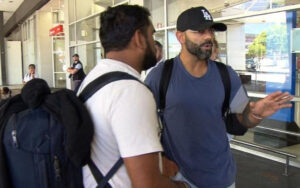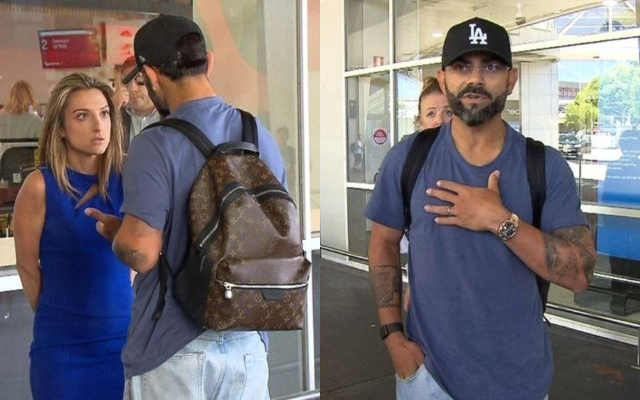
When Virat Kohli lost his cool at Melbourne airport, the moment quickly became a talking point. Cameras zoomed in, opinions flew, and debates erupted. Was Kohli overreacting? Should he expect privacy in public spaces? After all, isn’t fame a “package deal”—adoration on one hand and scrutiny on the other?
But lurking beneath the surface lies a much bigger question—one that extends beyond sport, beyond celebrity, and strikes at the core of what we value as a society: Where do we draw the line between admiration and intrusion?
This isn’t just about Kohli, or about cricket. It’s about the very human need for respect and dignity—something that fame should never take away.
Fame Does Not Equal Ownership
Kohli is more than just India’s cricketing heartbeat. He is a symbol of success, resilience, and a relentless pursuit of excellence. Off the field, however, he is like any other father—someone who wants to protect his children from the glaring lenses of the world.
And here lies the irony. While we celebrate his sixes and applaud his centuries, we seem to forget that Kohli’s life, like ours, is made up of private moments—moments he has every right to keep sacred.
Yet, the airport incident revealed something unsettling: the sense of ownership we feel over celebrities’ lives. It’s as if their fame comes with an unwritten clause—You belong to us. But does admiration mean entitlement? If Kohli’s plea for privacy angers us, then it’s time to introspect: Why do we think fame erases a person’s humanity?
Would You Be Okay with It?
Let’s pause for a moment and flip the script. Imagine you’re walking through an airport with your family. Cameras suddenly turn toward you—uninvited, unasked. Your children are being filmed. Strangers are dissecting your every move.
How would you feel? Violated? Angry? Powerless?
Now, replace yourself with Kohli. The situation doesn’t change. Being a public figure doesn’t dissolve the discomfort of intrusion. It amplifies it. Kohli’s celebrity status doesn’t make his children immune to privacy—it makes the need for it even more urgent.
The argument that “he shouldn’t bring his family out if he wants privacy” is not only unfair—it’s inhuman. Are celebrities expected to lock their families indoors to shield them from prying eyes? Does being famous mean they lose the right to take a stroll, to travel, or to simply exist without judgment?
If this incident feels acceptable to us, we must ask ourselves: Are we truly celebrating our heroes, or are we holding them captive in the glare of our expectations?
For the Latest Sports News: Click Here

Media: Power with Responsibility
Let’s be clear—the media plays a crucial role in connecting fans to their idols. Coverage brings us closer to our stars, fuels dreams, and drives conversations. But when does coverage turn into intrusion?
The answer lies in intent and consent. Filming Kohli at an airport is one thing; panning the cameras toward his children without permission is another. Children, no matter whose kids they are, deserve to be off-limits.
It’s easy to argue that Kohli misunderstood the situation at Melbourne airport. Perhaps he did. But that moment—his frustration, his words—was a reflection of something deeper. It was a reminder to media outlets and fans alike: Public figures are not public property.
With great access comes great responsibility. Media professionals must hold themselves to higher standards. Asking for consent isn’t just about ethics—it’s about basic human decency.
Fans: Loving with Boundaries
As fans, we love our heroes. We follow their careers, mimic their styles, and feel their victories as our own. This love builds careers, inspires generations, and fuels greatness. But love, when unchecked, can become possession.
It’s easy to forget that celebrities are people, not characters in a show we control. They have families, emotions, and boundaries—just like us. When Kohli asked for privacy, he wasn’t rejecting his fans. He was asking for respect.
True fandom isn’t just about cheering in stadiums or liking Instagram posts. It’s also about understanding where to stop. Loving someone doesn’t give us the right to take everything from them.
Kohli’s moment of frustration at Melbourne airport was not a sign of “attitude.” It was a father’s instinct. It was a man drawing a line—a line we must learn to respect.
The spotlight, no matter how bright, doesn’t extinguish their right to live as people first. And that, above all, is worth respecting.
Also Read: If Rohit gets his mind right, India can create history at the MCG




